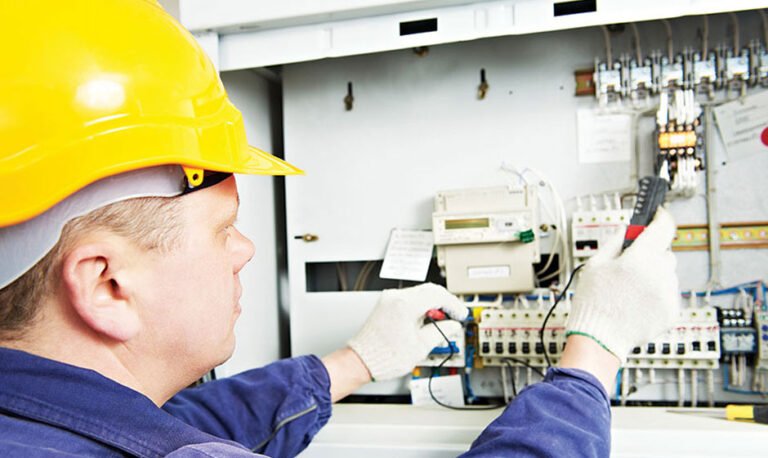Today, workplaces are filled with all sorts of electrical gadgets.
Think computers and copiers to big machines! Keeping them safe and working well is critical for smooth operations and staff safety. Safety checks mean fewer accidents, saving on repair costs or surprise downtime.
So let’s dive into four key safety tips that any company needs to follow when it comes to their electric gear:
Regular Visual Inspections
To keep things safe with electricity, start by checking stuff regularly. Look for hazards like worn-out cords or bare wires and broken plugs on electrical gear. Keep an eye out for any external damage signs, such as burns or cracks.
And don’t forget about the environment around it. Make sure there’s no water nearby that could cause short circuits or shocks.
Power boards crammed full of plugged-in devices can be a fire risk, so try to avoid those. Putting up clear signs warning people of possible electric dangers also helps everyone stay safer.
Testing and Tagging
Testing and tagging are essential for heavy machinery or construction equipment. It’s a two-step safety check that goes beyond regular visual checks. First, they visually inspect the gear (like in usual inspections).
Then, it gets an electrical test with something called a portable appliance tester to spot hidden faults. If deemed safe after all this, it earns itself a dated tag. This tag says when its next scheduled review is due, so everyone knows, “this machine’s good!”
Proper Training and Documentation
Having safe gear is great, but staff need to know how to use it right. Businesses should host regular training sessions on using electrical equipment safely. This can cover proper handling and knowing what steps are taken in emergencies.
But there’s more, keeping records of each appliance matters a lot, too! Things like manuals, safety rules, and service logs give full insight into the machine’s past, helping promptly spot any problems that may arise.
Periodic Professional Maintenance
Even with regular checks and good training, electrical systems can be tricky. Sometimes, problems go unnoticed.
That’s where expert maintenance comes in handy. By having professionals check things periodically, companies ensure everything runs smoothly while sticking to safety rules.
These pros have the right tools and know-how to spot risks that are hidden from the untrained eyes of those who are not familiar with electrical equipment and systems.
Apart from fixing immediate issues, they also help prevent future ones, which extends equipment life for a safer workplace.
Conclusion
Taking care of electrical gear at work isn’t just about efficiency. It’s really a safety, ethics, and responsibility thing. Companies can use these four safety checks to keep employees safe, assets protected, and businesses running smoothly. It’s worth the time upfront for trust-building benefits down the line.


